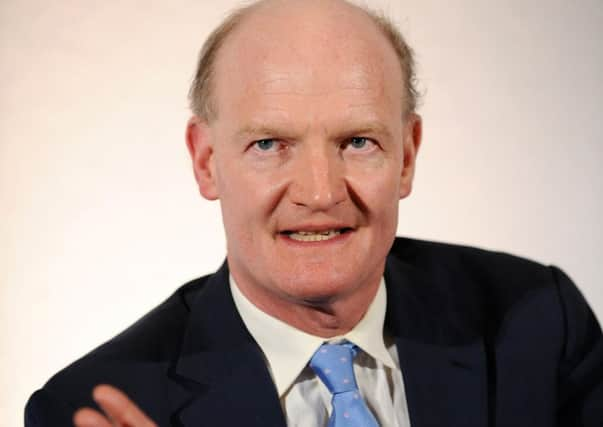University to be hub for ‘Big Data’


The research could also help to create jobs in a wide range of sectors across Yorkshire.
Academics from Leeds University have received grants to help them analyse the vast amounts of data produced by individuals and public sector organisations, in order to help shape Government policy.
Advertisement
Hide AdAdvertisement
Hide AdEvery time we buy goods, or use public services, we leave a digital record behind. This ‘Big Data’ can potentially be used by academics to spot wider trends.
Yesterday, the University of Leeds received two multi-million pound grants that should turn it into a major centre for Big Data analysis.
The grants, announced by Minister for Universities and Science, David Willetts, at the High Performance Computing and Big Data conference in London, were awarded by the Economic and Social Research Council (ESRC) and the Medical Research Council (MRC).
The University of Leeds has been awarded £5.8m from the MRC and, although the final details are still being negotiated, a further grant of around £5m from the ESRC.
Advertisement
Hide AdAdvertisement
Hide AdThe ESRC grant will be used to establish a new master’s course in Geography and Business, which will help to address a national skill shortages in Big Data analysis. It will also fund a Consumer Data Research Centre (CDRC), which will be jointly hosted by the University of Leeds and University College London.
The CDRC will be a national resource that will make data, which is routinely collected by business and local government organisations, accessible for academics so they can carry out research that could shape Government policy.
At Leeds, this data analysis will span a wide range of topics, including research into controlling the spread of epidemics and improving the transport system. It could also help with other challenges, such as mapping consumer trends and tracing relationships between shopping habits and health.
Professor Mark Birkin, of the University of Leeds’ School of Geography, who will lead the ESRC project, said: “The modern consumer environment is producing vast amounts of data that we are only just starting to get to grips with.
Advertisement
Hide AdAdvertisement
Hide Ad“These data sets can contain enormous volumes of information that, if analysed and studied in the right way, will offer valuable insights into our society.” Yesterday, Mr Birkin said the Big Data analysis could play a role in transport planning, which could mean we have fewer traffic jams.
He said: “Bus routes are still the same as they were 35 years ago, despite the way mobility patterns have changed.”
He said the establishment of a Big Data hub in Leeds could create employment opportunities at a number of firms, including information providers to the healthcare sector. Initially, the CDRC is expected to create around 12 jobs.
The ESRC project will include stringent checks to protect the identities of individuals. The MRC-funded research will focus on linking up electronic health records, from people who want their data used for research, with other data. The findings will be used to help improve healthcare.
Advertisement
Hide AdAdvertisement
Hide AdAs well as the ESRC and MRC funding announcement, the University of Leeds has also received research funding for Big Data projects from the Arts and Humanities Research Council (AHRC) and the Natural Environment Research Council (NERC).
The AHRC has awarded the University £280,000 for a project which aims to find ways of making data more accessible to the public.
An award of £183,000 from NERC will enable researchers to expand a processing facility for the large amounts of radar data that will be created by the satellite Sentinel-1, which is due to be launched in March. This grant will allow greater access to this data.
It will enable scientists to monitor and map ground movement in all regions across the world that suffer from earthquakes and volcanic eruptions. It will also monitor the rates of ice loss from Greenland and Antarctica.
Advertisement
Hide AdAdvertisement
Hide AdMr Willetts said: “Making the most of large and complex data is a huge priority for Government as it has the potential to drive research and development, increase productivity and innovation and ultimately transform lives.”
Mark Goldstone, the head of business representation and policy at Leeds, York and North Yorkshire Chamber of Commerce, said yesterday: “This is significant investment and recognises the important role the University of Leeds plays in this agenda. Leeds already has many strengths in this sector and this investment will strongly support future development and expansion.”
Comment: Page 12